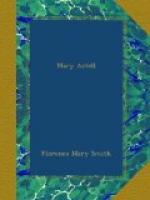|
This section contains 10,845 words (approx. 37 pages at 300 words per page) |

|
SOURCE: Bryson, Cynthia B. “Mary Astell: Defender of the ‘Disembodied Mind’.” Hypatia 13, No. 4 (Fall 1998): 40-62.
In following essay, Bryson argues that Astell's version of Cartesian dualism, her criticism of John Locke's theories, and her importance as a political theorist and metaphysician demonstrate the reasons why she has been declared the first English feminist.
“Mr. Duffy lived a short distance from his body.”
James Joyce, Ulysses
There has been a recent growing interest in the political and philosophical theorizing of late-Medieval and Renaissance women writers.1 The late seventeenth century's Mary Astell has been deemed by many present-day philosophers and historians to be the first female English feminist.2 While she may or may not have in fact been the first English feminist (as Bridget Hill has identified her), Astell was undeniably (1) the first woman to enthusiastically ascribe to Descartes's methodology in publication and, perhaps even more importantly, (2) the first woman...
|
This section contains 10,845 words (approx. 37 pages at 300 words per page) |

|


